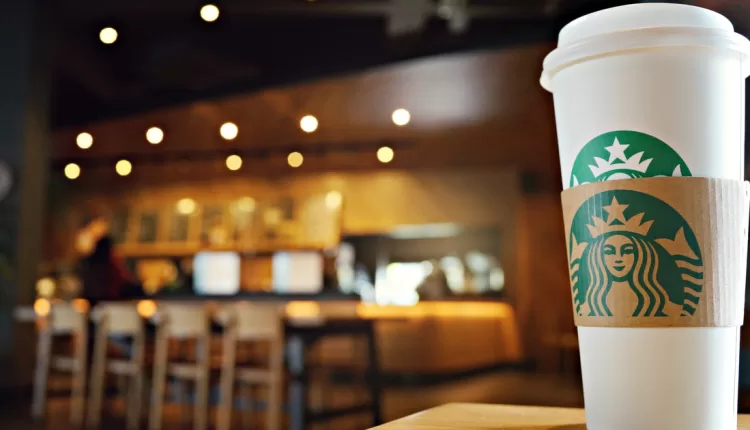Starbucks Corporation, a global coffee and cocoa beverage retail chain, has come under renewed pressure from a global civil society coalition to come clean about where it sources the cocoa for its chocolate products.
The Coalition, consisting of Be Slavery Free, Freedom United, Green America, and Mighty Earth, has launched a new campaign, including a public petition to mount pressure on Starbucks to be transparent about the source of its cocoa.
In a letter to Starbucks’ CEO, Laxman Narasimhan, the coalition says the global coffee chain failed to provide the information to show it is adequately addressing deforestation and child labour risks in its cocoa supply chains or to ensure a living income for cocoa farmers.
According to the coalition, its action follows the recent release of Starbucks’ 2022 Global Environmental and Social Impact (GESI) report, which failed to provide any detailed information about the company’s cocoa purchasing or due diligence checks, leaving Starbucks’ consumers in the dark about the ethical credentials of its chocolate drink and snack products.
In January, following pressure from the coalition, Starbucks made several commitments in relation to its cocoa sourcing policy, including publishing data about its cocoa sourcing in the GESI report, and a plan to give farmers a living income for growing its cocoa beans.
The coalition is now pressuring the coffee giant to live up to those promises.
What is the problem?
The cocoa industry is plagued by numerous social and environmental issues, including some of the worst forms of child labour (which includes trafficked labour), rampant deforestation, overuse of pesticides, and farmer poverty.
In its GESI 2022 report, Starbucks says its approach to sourcing cocoa responsibly is “built on a foundation of traceability, responsible purchasing practices and a commitment to supporting resilient livelihoods for cocoa producers and their families”, including reducing and working towards eliminating the risks of child labour and cocoa-driven deforestation.
But the company provides few details and appears to have very little understanding of where its cocoa comes from or the conditions under which it was grown.
“We’ve been engaging with Starbucks for over a year, but we’re still in the dark as to how the world’s largest coffee chain sources cocoa for its chocolate products, including sprinkles for cappuccinos,” said Dr Julian Oram, Senior Director at Mighty Earth.
He stated, “Considering it sells millions of cups of coffee a day, that’s a lot of chocolate. Starbucks’ customers deserve to have full confidence that the chocolate beverages and snacks they are buying from the company’s stores are not laced with deforestation and child labour.”
Starbucks sources cocoa from Côte d’Ivoire, where deforestation rates are stubbornly high.
The West African country has lost more than 90% of its forest cover, largely due to cocoa farming.
The Executive Co-Director of Green America, Todd Larsen, said “Starbucks claims that it is ‘Putting People First.’ The company is clearly not living up to that ambition in the way it treats its domestic workers or the labourers who supply it with cocoa.
To protect cocoa communities Starbucks needs to pay cocoa farmers a living income, protect children from child labour, and end deforestation.”
The average cocoa farmer earns less than US$1.20 a day leaving them well below the extreme poverty line of US$2.15 per person per day.
Starbucks’ gross profit for the twelve months ending March 31, 2023, was US$23.061B, a 6.57% increase year-over-year.
This according to the global civil society coalition is unacceptable.
Carolyn Kitto, Co-Director at Be Slavery Free noted “Starbucks has been lauded as one of the world’s most recognised and popular brands. Their logo features a Siren from Moby Dick (by Herman Melville). The Sirens lured sailors with their beautiful voices to be shipwrecked.
Don’t be seduced into believing all is well. For the farmers of cocoa they are in the middle of a slow shipwreck; in a perfect storm of ongoing poverty, Worst Forms of Child Labor, massive deforestation, climate change and poisoning with pesticides.”
On her part, the Executive Director of Freedom United, Joanna Ewart-James, said “Starbucks does not have a reputation for encouraging worker empowerment, having famously failed to put in place even one collective bargaining agreement with workers, despite a strong union drive across U.S. stores.
This approach to workers’ rights is no different down their supply chain where, like many other companies, they are failing to ensure cocoa farmers supplying their chocolate products have enough to make ends meet. It is time we made clear that we expect Starbucks to put people above profit.”
A litany of failure
The coalition says despite repeated requests by Be Slavery Free, Freedom United, Green America, and Mighty Earth, Starbucks has failed to provide this vital information about the source of its cocoa or publish a living income strategy for farmers.
They insist, while the company has produced an action plan for improving its cocoa sustainability as part of its commitments under the Cocoa and Forests Initiative, it has yet to provide any information about its progress towards these commitments.
This renders Starbucks’ claims about sourcing sustainable cocoa meaningless, the Coalition said.
Starbucks did participate in the 2023 Chocolate Scorecard after refusing to take part the previous year, but the campaigners say that this is just the first step: the company needs to go further, faster.
Other major cocoa buyers are using traceability tools to identify and publish lists of their suppliers.
- Illegal Mining Threatening Ghana’s $230M Cocoa Rehabilitation - April 10, 2024
- Ghana Raises Cocoa Farmgate Price by 58.26% to GHC2,070 per bag - April 5, 2024
- New Standard for Measuring Cocoa Household Income Launched - April 5, 2024
